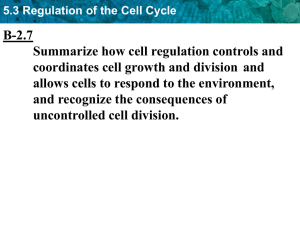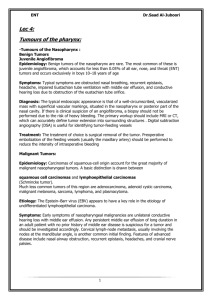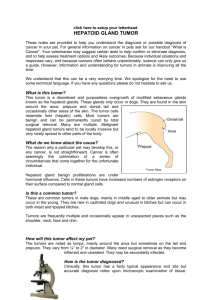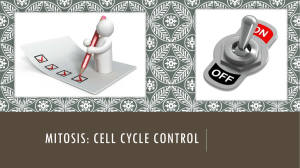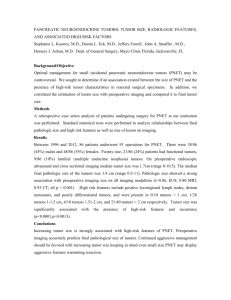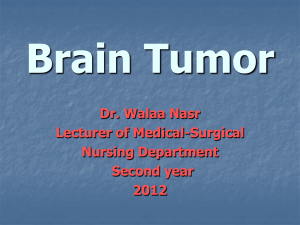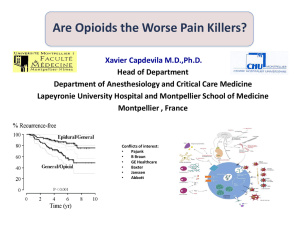Glucose Curve Procedure For Diabetics
advertisement
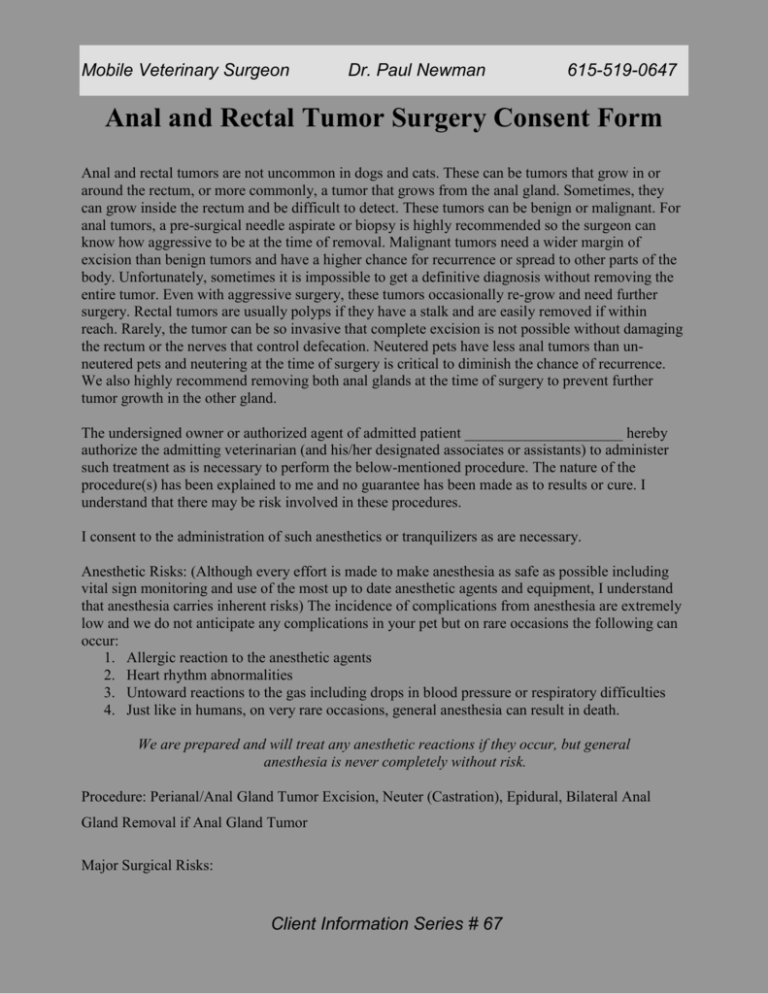
Mobile Veterinary Surgeon Dr. Paul Newman 615-519-0647 Anal and Rectal Tumor Surgery Consent Form Anal and rectal tumors are not uncommon in dogs and cats. These can be tumors that grow in or around the rectum, or more commonly, a tumor that grows from the anal gland. Sometimes, they can grow inside the rectum and be difficult to detect. These tumors can be benign or malignant. For anal tumors, a pre-surgical needle aspirate or biopsy is highly recommended so the surgeon can know how aggressive to be at the time of removal. Malignant tumors need a wider margin of excision than benign tumors and have a higher chance for recurrence or spread to other parts of the body. Unfortunately, sometimes it is impossible to get a definitive diagnosis without removing the entire tumor. Even with aggressive surgery, these tumors occasionally re-grow and need further surgery. Rectal tumors are usually polyps if they have a stalk and are easily removed if within reach. Rarely, the tumor can be so invasive that complete excision is not possible without damaging the rectum or the nerves that control defecation. Neutered pets have less anal tumors than unneutered pets and neutering at the time of surgery is critical to diminish the chance of recurrence. We also highly recommend removing both anal glands at the time of surgery to prevent further tumor growth in the other gland. The undersigned owner or authorized agent of admitted patient _____________________ hereby authorize the admitting veterinarian (and his/her designated associates or assistants) to administer such treatment as is necessary to perform the below-mentioned procedure. The nature of the procedure(s) has been explained to me and no guarantee has been made as to results or cure. I understand that there may be risk involved in these procedures. I consent to the administration of such anesthetics or tranquilizers as are necessary. Anesthetic Risks: (Although every effort is made to make anesthesia as safe as possible including vital sign monitoring and use of the most up to date anesthetic agents and equipment, I understand that anesthesia carries inherent risks) The incidence of complications from anesthesia are extremely low and we do not anticipate any complications in your pet but on rare occasions the following can occur: 1. Allergic reaction to the anesthetic agents 2. Heart rhythm abnormalities 3. Untoward reactions to the gas including drops in blood pressure or respiratory difficulties 4. Just like in humans, on very rare occasions, general anesthesia can result in death. We are prepared and will treat any anesthetic reactions if they occur, but general anesthesia is never completely without risk. Procedure: Perianal/Anal Gland Tumor Excision, Neuter (Castration), Epidural, Bilateral Anal Gland Removal if Anal Gland Tumor Major Surgical Risks: Client Information Series # 67 Mobile Veterinary Surgeon Dr. Paul Newman 615-519-0647 1. Infection is much more common with surgery around the rectum than other areas. 2. Wound dehiscence can occur due to infection or abnormal healing from diseased tissue. This will usually heal from the inside out without further surgery but keeping the wound clean is very important. 3. Tumor re-growth (unlikely if benign and pet is neutered) 4. If previous biopsy was not representative and tumor is actually malignant (unlikely), complete excision may not be possible. 5. If tumor is very invasive, it may not be possible to completely remove the growth 6. Some tumors can involve the nerves that control your pet’s ability to defecate and removal can, on rare occasions, cause incontinence. 7. Second surgery may be necessary if malignant without clean surgical margins. 8. Epidural complications are extremely rare but include transient (temporary) urinary retention, allergic reaction, itching at site of injection, infection and transient rear leg weakness for 1-2 days. ______________________________________________________________________________ Date Pet Owner/Agent Signature Phone I Can Be Reached At Today Client Information Series # 67
